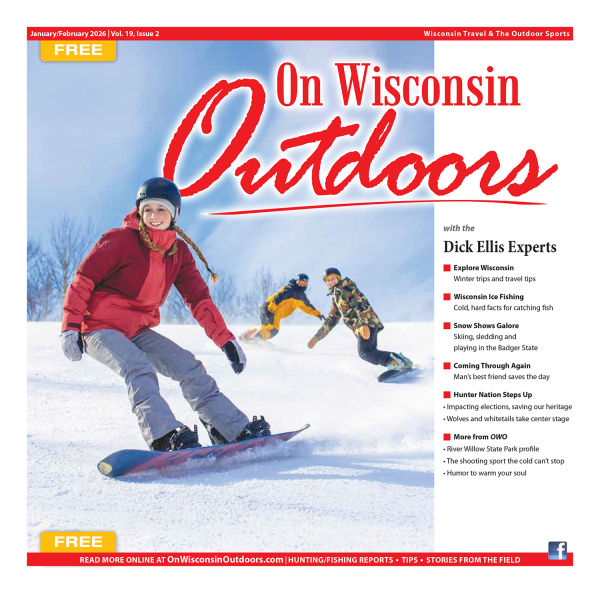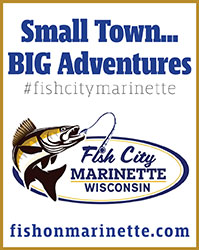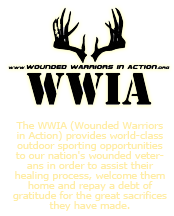| NEWS RELEASE: Three Snowmobile Related Fatalities Over Weekend |
| 02/14/2022 |
| |
|
FOR IMMEDIATE RELEASE: Feb. 14, 2022
Contact: DNR Office of Communications
DNRPress@wisconsin.gov
Three Snowmobile Related Fatalities Over Weekend
Think Smart Before You Start: Make Safety A Part Of Your Ride
MADISON, Wis. – Following a deadly weekend of snowmobiling, the Wisconsin Department of Natural Resources (DNR) urges the public to be safe while out on the trails.
Since the start of the new year, there have been 10 snowmobile fatalities with one additional pending investigation. There were 13 fatalities in 2021.
While this weekend’s crashes are still under investigation, the overall leading causes of snowmobile fatalities are alcohol, excess speed, driver inexperience and operator error.
“Conditions can change, and what was at first a smooth trail could be hazardous by the end of the day. Take your time and slow down, especially at night,” said Lt. Martin Stone, DNR Off-Highway Vehicle Administrator. “Safety is an important part of the ride. We want everyone who goes out to enjoy this long-standing tradition in Wisconsin to make it back home safely.”
If your adventure includes riding over frozen lakes or ponds, be aware that ice is never 100% safe. Snowmobilers cannot judge ice strength by factors like appearance, age, thickness or temperature, especially when the ice is snow-covered.
Before heading out with friends or family, please review Wisconsin’s snowmobile safety rules and regulations.
Any person who is at least 12-years-old, born on or after Jan. 1, 1985, must have a valid Snowmobile Safety Certificate in order to operate a snowmobile in most areas. Operators must carry the certificate while riding and display it to a law enforcement officer when requested. Visit the DNR Safety Education webpage for details and to locate a class or take an online course.
Think smart before you start this season by following these tips for a safe ride:
SNOWMOBILE SAFETY TIPS
- Don’t drink and ride.
- Stay on marked trails—riding off-trail or cutting corners is trespassing.
- Always wear your helmet and safety gear.
- Slow down and use extra caution at night.
- Travel with a friend, carry a cell phone and let people know where you are going and when you’ll return home.
- Dress appropriately, carry a first aid kit and navigation tools.
- Take a snowmobile safety course.
- Check trail conditions using the Travel Wisconsin Snowmobile Snow Report.
ICE SAFETY
- Remember that ice is never completely safe under any conditions.
- Contact local sport shops to ask about ice conditions locally on the lake or river you want to traverse.
- Wear proper clothing and equipment, including a life jacket or float coat should you fall through the ice and to help retain body heat.
- Do not travel in unfamiliar areas.
- Slow down when traveling at night.
- Know if the lake has inlets, outlets or narrows that have currents that can thin the ice.
- Watch for pressure ridges or ice buckling. These can be dangerous due to thin ice and open water.
- For additional information on snowmobile safety classes, regulations, safety tips or to register your snowmobile, click here.
DNR VIOLATION HOTLINE
Anyone with information regarding natural resource violations, including unsafe snowmobile operation, may confidentially report by calling or texting: VIOLATION HOTLINE: 1-800-TIP-WDNR or 1-800-847-9367. The hotline is available 24 hours a day, seven days a week. Trained staff relay the information to conservation wardens. File an anonymous online report here.
|
|
|
|
|
 |
| NEWS RELEASE: DNR Now Accepting Applications For 2023 Class Of State Conservation Wardens |
| 02/15/2022 |
| |
|
FOR IMMEDIATE RELEASE: Feb. 15, 2021
Contact: Cara Kamke, DNR Training Director
cara.kamke@wisconsin.gov or 608-866-0236
DNR Now Accepting Applications For 2023 Class
Of State Conservation Wardens
Application Deadline March 6, 2022

The DNR is currently accepting applications for the 2023 class of Conservation Wardens through March 6, 2022.. / Photo Credit: Wisconsin DNR
MADISON, Wis. – The Wisconsin Department of Natural Resources (DNR) is currently accepting applications for the 2023 class of Conservation Wardens through March 6, 2022.
Join the team protecting Wisconsin’s natural resources and the people who depend on them. Apply at Wisc.Jobs and search for Job ID: 4757.
DNR conservation wardens are credentialed law enforcement officers stationed statewide, serving rural and urban communities. Wardens enforce laws that protect fish and wildlife, the environment, state parks and forests, and outdoor recreation enthusiasts.
The department will hire approximately a dozen full-time wardens for the upcoming class who will begin training in October 2022. Applicants must:
- Be at least age 21 upon hire; and
- Already have earned or be planning to earn at least 60 college credits within their first five years of being hired.
Conservation wardens also serve as ambassadors and educators, teaching the public about natural resources, outdoor safety and environmental conservation.
The Warden Service offers opportunities to build relationships, protect the state’s natural resources, and serve communities in unique and essential ways.
Learn More
Learn more about this remarkable career here. The public can also watch a previously recorded webinar covering the day-to-day work of a conservation warden on the DNR’s YouTube channel here.
Apply for a position here.
|
|
|
|
|
 |
| NEWS RELEASE: Celebrate National Battery Day On Feb. 18 |
| 02/15/2022 |
| |
|
FOR IMMEDIATE RELEASE: Feb. 15, 2022
Contact: Sarah Murray, DNR E-Cycle Wisconsin Coordinator
sarah.murray@wisconsin.gov or 608-234-0533
Celebrate National Battery Day On Feb. 18
Prevent Fires By Properly Discarding Batteries And Electronics

Many batteries, especially powerful lithium-ion batteries in small electronics, can spark or react in ways that can lead to a fire. / Photo Credit: Neil Peters-Michaud/Cascade Asset Management
MADISON, Wis. – Ahead of National Battery Day on Feb. 18, the Wisconsin Department of Natural Resources (DNR) reminds the public of the dangers of throwing used batteries and electronics in the trash.
With an uptick in fires in collection trucks and at recycling and disposal facilities, the DNR is working with the state’s waste and recycling industry to raise consumer awareness about the proper disposal of used batteries and electronics.
Many batteries, especially powerful lithium-ion batteries in small electronics, can hold a considerable charge even when they no longer provide sufficient energy to power a device. When these batteries are damaged, they can spark or react in ways that can lead to a fire.
“When you put electronics or rechargeable batteries in your recycling or trash container, you’re putting workers at risk,” said Chris Blan, Brown County Resource Recovery Technician. “Taking batteries or electronics to a drop-off site may be an extra step, but it’s really important.”
When consumers put used batteries or electronics in trash or recycling bins, the heavy equipment involved with collecting, sorting, and recycling or disposing of the waste can easily damage the batteries. A punctured or bent lithium-ion battery can produce enough heat to melt or ignite materials near the battery, even if the battery itself does not ignite.
Collection trucks, recycling facilities, transfer stations and landfills have seen increasing numbers of fires caused by damaged batteries. A 2021 study by the U.S. Environmental Protection Agency identified 245 fires in waste management facilities and vehicles nationwide between 2013 and 2020 likely caused by lithium-ion batteries.
If not caught early, these fires can quickly spread and injure workers or firefighters and cause major damage to equipment, with some even destroying entire facilities. The EPA study found fires were particularly damaging at facilities that recycle materials like cans, bottles and paper, as facilities like that are not designed to handle electronics or batteries.
Some batteries, such as single-use alkaline batteries, are safe to put in the trash. But it’s important to understand which batteries you have and how to store and dispose of them, said Sarah Murray, DNR E-Cycle Wisconsin Coordinator.
“With so many devices in our homes powered by so many different shapes and types of batteries, we know it can be confusing,” Murray said. “We want to help everyone understand how to identify their batteries and where you can recycle batteries and electronics.”
Here’s what consumers can do:
- Learn about the different types of batteries in their homes and how to manage them. The DNR has a household battery recycling guide to help.
- Take used, rechargeable batteries to local collection sites. Check with battery retailers about their recycling programs or search for nearby sites through battery recycling organization Call2Recycle’s website or by calling 1-877-2-RECYCLE.
- Recycle old electronics through E-Cycle Wisconsin. Many small electronics can be recycled for free or traded in for credit or cash. Visit the DNR’s list of collection sites and free mail-back programs.
- Don’t put electronics or rechargeable batteries in trash or recycling containers. Most electronics are banned from landfills and incinerators, and they are not recycled at the same facilities that recycle plastics, glass and paper.
- When storing batteries for recycling, tape the terminals or put each battery in an individual plastic bag, which prevents batteries from accidentally sparking if terminals touch.
- Store damaged (swollen, bent, punctured or crushed) batteries or devices in sand or kitty litter and, if possible, contact the manufacturer or Call2Recycle for instructions.
- Do not try to take non-removable batteries out of devices, as this could lead to damage.
Businesses and institutions have special requirements to determine which types of batteries they have and manage batteries according to hazardous waste regulations.
For more information, refer to the DNR webpage on the proper handling of used batteries.
|
|
|
|
|
 |
| NEWS RELEASE: DNR To Host Public Meeting On Disposal Of Sediments From Mississippi River Dredging |
| 02/15/2022 |
| |
|
FOR IMMEDIATE RELEASE: Feb. 15, 2022
Contact: Carolyn Cooper, DNR Hydrogeologist
carolyn.cooper@wisconsin.gov or 608-931-9387
DNR To Host Public Meeting On Disposal Of
Sediments From Mississippi River Dredging
LA CROSSE, Wis. – The Wisconsin Department of Natural Resources (DNR) will host a public meeting to discuss the disposal of dredged material from the Mississippi River at 1 p.m. on Tuesday, Feb. 22.
The meeting will take place in the Maplewood Room at the Black River Beach Neighborhood Center, located at 1433 Rose St. in La Crosse. While room capacity is limited to 15 people at a time, the meeting will also be livestreamed via Zoom. Pre-registration is required for the Zoom meeting.
The City of La Crosse has requested approval from the DNR to dispose of sediment dredged from the Mississippi River as part of the La Crosse Cruise Ship Landing Project. The material would be placed on a city-owned property located at 2000 Marco Dr. on Isle la Plume. The material would then be capped with clean soil and seeded.
At the meeting, the public is encouraged to share comments and asks questions on the proposal. There will be a brief introduction and explanation of the project by DNR staff and city representatives. All public comments will be considered by the DNR in its decision on the proposal. Please submit comments by March 1, 2022 to:
Carolyn Cooper, DNR Hydrogeologist
Email: carolyn.cooper@wisconsin.gov
___________________________________________________________________
MEETING DETAILS
WHAT: Public Meeting On Mississippi River Dredging and the La Crosse Cruise Ship Landing Project
WHEN: 1 p.m. Feb. 22, 2022
WHERE: Maplewood Room at the Black River Beach Neighborhood Center, located at 1433 Rose St. in La Crosse. (Room capacity is limited to 15 people.) The public may also watch the meeting virtually via Zoom by registering ahead of time here.
Join by phone: 888-475-4499. Meeting ID 853 0188 1836
|
|
|
|
|
 |
| NEWS RELEASE: DNR To Refund $10 Application Fee For 2021 Fall Wolf Harvest Permit Or Preference Point |
| 02/17/2022 |
| |
|
FOR IMMEDIATE RELEASE: Feb. 17, 2022
Contact: DNR Office of Communications
DNRPress@wisconsin.gov
DNR To Refund $10 Application Fee For
2021 Fall Wolf Harvest Permit Or Preference Point
MADISON, Wis. – The Department of Natural Resources (DNR) today announced it will refund the $10 application fee to customers who applied for a wolf harvest permit or preference point for the Fall 2021 wolf harvest season. The department will restore all customer's wolf preference point records to their Fall 2021 pre-application status.
Following a federal court ruling on Feb. 10, wolves in the lower 48 states were returned to the Federal Endangered Species List. (The ruling excludes wolves in the northern Rocky Mountains region.) Under Wisconsin law, if the wolf is listed on the federal endangered list, the state is not authorized to implement a wolf harvest season.
As a result of this change, the Wisconsin DNR will be refunding the $10 application fee and updating wolf preference points on customer records. The $10 refund check will arrive by U.S. mail. Please allow 4-6 weeks for delivery.
Other immediate implications of this ruling include the following:
- Permits allowing lethal removal of wolves issued to landowners experiencing wolf conflicts are no longer valid. The department has contacted permit holders directly.
- The department is not authorized to use lethal control as part of its conflict management program. Non-lethal tools remain available.
- The training of dogs to track and trail wolves is not allowed. Dog hunters may no longer pursue wolves for training purposes.
The DNR remains committed to assisting individuals that experience conflicts with wolves through an interagency cooperative agreement with USDA-Wildlife Services for abatement and control.
If you suspect wolves in the depredation of livestock, pets or hunting dogs, or if wolves are exhibiting threatening or dangerous behavior, contact USDA-Wildlife Services staff immediately. If in northern Wisconsin, call 1-800-228-1368 or 715-369-5221; if in southern Wisconsin, call 1-800-433-0663 or 920-324-4514.
For more on wolves in Wisconsin, visit the DNR website for additional information on wolf management and wolf conflict abatement.
|
|
|
|
|
 |
| NEWS RELEASE: DNR Announces New Winnebago System Fisheries Biologists |
| 02/17/2022 |
| |
|
FOR IMMEDIATE RELEASE: Feb. 17, 2022
Contact: DNR Office of Communications
DNRPress@wisconsin.gov
DNR Announces New Winnebago System
Fisheries Biologists
MADISON, Wis. – The Department of Natural Resources (DNR) today announced Margaret Stadig and Angelo Cozzola are the new Lake Winnebago System fisheries biologists. Both Stadig and Cozzola started their new roles on Monday, Feb. 14.
“These are two very important positions that are critical to fish management for the entire Winnebago System, especially our walleye, panfish, and sturgeon species,” said Justine Hasz, DNR Fisheries Management Bureau Director. “I’m so excited to have them both on board and can’t wait to see the great things they’ll bring to the program and the fishery.”
At 28 and a half miles long and 10 and a half miles wide, Lake Winnebago is the largest inland lake in Wisconsin and an essential resource for surrounding communities. With more than 88 miles of shoreline spanning 215 square miles, the lake provides ample outdoor recreation and angling opportunities.
Anglers from across the state seek out the popular Winnebago System for walleye, white bass, largemouth and smallmouth bass, northern pike, muskellunge and panfish, including perch and bluegill.
The Winnebago System also supports strong populations of lake sturgeon and an annual winter sturgeon spearing season that provides biologists with valuable data on the iconic fish species. Stadig and Cozzola will work on species management, habitat monitoring and restoration, and more.
Margaret Stadig will focus primarily on managing the iconic Lake Winnebago System lake sturgeon population. A native of Michigan, Stadig has extensive experience working with large, primitive fish species. Most recently, she worked for the Texas Parks and Wildlife Department partnering on the reintroduction of the prehistoric paddlefish into the Big Cypress Bayou System. Prior to working at the Texas Parks and Wildlife Department, Stadig studied lake sturgeon with the U.S. Fish and Wildlife Service on the St. Clair River system.
“I am extremely excited to be back in the Great Lakes region managing one of my favorite fish species,” said Stadig. “Working with the staff and seeing the passion the spearers have these past few days during the season has been a great reminder of why I went into fisheries management. I look forward to interacting with the staff and our partners to continue to do right by this resource in the future.”
Angelo Cozzola will focus primarily on managing the highly sought-after walleye, as well as northern pike, muskellunge and other popular game fish on the Winnebago system. Prior to his new role, Cozzola was a DNR fisheries technician based in Oshkosh. Before joining the DNR`s fisheries management program, he completed graduate school at the University of Wisconsin-Madison where he investigated the effects of herbicides on native Wisconsin fish species.
“I am very excited to take on my new role managing game fish on the Lake Winnebago system. The system is incredibly diverse in species composition and habitat types that make it a really interesting place to work,” said Cozzola. “The system is also surrounded by a super passionate user group I am looking forward to working with. Working out of the office previous to my new position has helped me get familiar with the management activities of the area.”
|
|
|
|
|
 |
| NEWS RELEASE: DNR Announces Additional Funding Now Available For Communities Impacted By Storm Damage |
| 02/17/2022 |
| |
|
FOR IMMEDIATE RELEASE: Feb. 17, 2022
Contact: Nicolle Spafford, DNR Program Specialist
Nicolle.Spafford@wisconsin.gov or 715-896-7099
DNR Announces Additional Funding Now Available For Communities Impacted By Storm Damage
MADISON, Wis. – The Wisconsin Department of Natural Resources (DNR) today announced that five communities impacted by severe weather last July will receive an additional $123,600 of aid from reserve funds.
On July 28, 2021, Marathon County and the cities of Omro, Ripon, Tomahawk and Watertown each experienced catastrophic storm damage following severe weather conditions.
Initially, the five grant applicants sought $228,435 from the DNR's Urban Forestry Catastrophic Storm Grant program to lessen the burden of the impacted communities. However, the grant funds were limited to $104,920.
To assist with funding, the DNR submitted a request in November to the Joint Committee on Finance to transfer additional funds from the forestry emergency reserve.
This reserve was created in 2017, resulting from the Wisconsin ACT 59, which assists with emergency responses to significant fire, disease, infestation or other natural disasters that federal funds could not otherwise reimburse.
The Joint Committee on Finance approved the requested amount of $123,600 to supplement the Urban Forestry’s Catastrophic Storm Grant offering. As a result, all five communities will be eligible to receive the total amount requested on their grant applications.
The Catastrophic Storm Grant program is for tree repair, removal or replacement within urban areas following a catastrophic storm event for which the governor has declared a state of emergency. A catastrophic storm means damage to urban forests caused by snow, ice, hail, wind or tornado.
|
|
|
|
|
 |
| REMINDER: DNR Asks Public To Report Black Bear Den Locations For New Research Study |
| 02/18/2022 |
| |
|
FOR IMMEDIATE RELEASE: Feb. 18, 2022
Contact: Jennifer Price-Tack, DNR Large Carnivore and Elk Research Scientist
jennifer.pricetack@wisconsin.gov or 715-499-1097
REMINDER: DNR Asks Public To Report Black Bear Den Locations For New Research Study

A black bear sow and her cubs in Douglas County. / Photo Credit: Wisconsin DNR
MADISON, Wis. – The Wisconsin Department of Natural Resources (DNR) asks the public to report any black bear den locations they find across Wisconsin to support a new research study.
Conducted by the department’s Office of Applied Science, the study will analyze reported dens and generate estimates of reproductive rates of black bears within each bear management zone. These estimates will improve the accuracy of the population models for those zones.
Public reporting of bear dens will increase the study’s success and the accuracy of the black bear population model, as black bear dens are difficult to locate. The public is encouraged to report as much information about the den’s location and recent use as possible without approaching or disturbing the dens. Den locations from prior years can be useful since black bears will occasionally re-use dens.
The DNR’s Office of Applied Sciences will begin research at the end of February and continue until collaring goals are met. Research staff will collar female black bears and collect data at each den, such as the sex, weight and body measurements of the sow and cubs.
The DNR’s researchers appreciate the help of local and federal biologists, tribal partners and the general public in locating black bear dens.

More information about wildlife research projects is available here.
Learn more about black bear ecology, history and management in Wisconsin and review the 2019-2029 Wisconsin Black Bear Management Plan on the DNR website here.
|
|
|
|
|
















